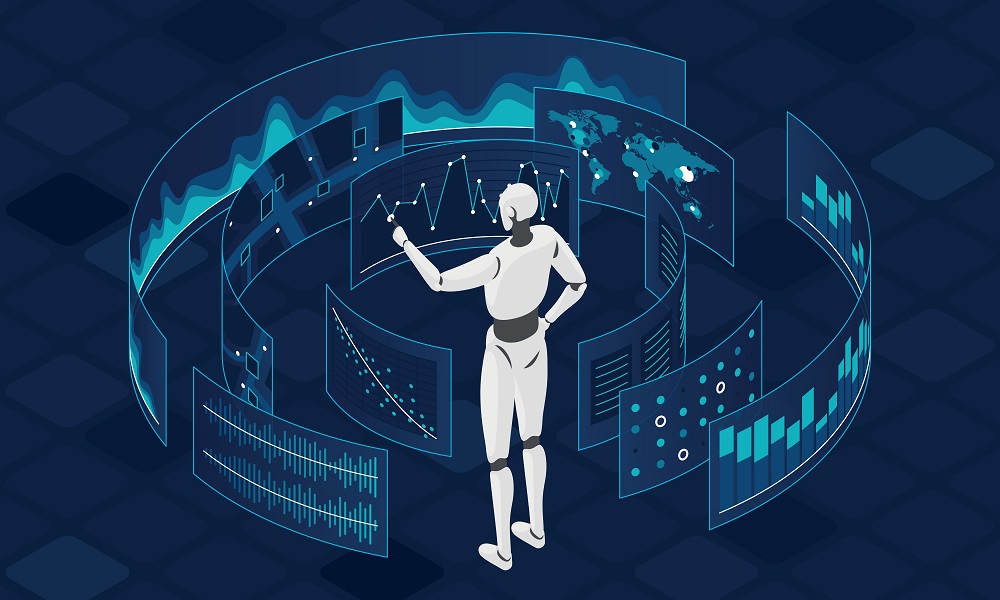This article will explore five cutting-edge technologies that are revolutionizing the world of app development. From artificial intelligence to blockchain, these technologies are changing the way developers create and deploy applications, paving the way for a more efficient and innovative future.
In today’s fast-paced world, technology is constantly evolving, and app development is no exception. With the rise of emerging technologies, developers are able to create applications that were once thought impossible.
The market is currently flooded with millions of apps, and developers are constantly looking for ways to make their products stand out in the crowd. In this article, we will explore five cutting-edge technologies that are changing the future of app development.
Artificial Intelligence
Artificial Intelligence (AI) is a rapidly evolving technology that is transforming the world of app development. AI enables developers to create intelligent apps that can learn and adapt to user behavior, providing a personalized experience.

These apps can also automate complex tasks, making them more efficient and reducing the workload of developers. AI-powered apps can analyze user data and provide insights, helping businesses make data-driven decisions.
In addition, AI can be used for predictive analysis, allowing developers to identify potential issues and address them before they occur. AI is also used in chatbots, which can be used to provide customer service and answer queries, saving businesses time and resources.
As AI technology continues to evolve, we can expect to see even more exciting developments in the world of app development, enabling businesses to create smarter and more efficient apps that provide a seamless user experience.
Internet of Things
The Internet of Things (IoT) is a network of physical devices, vehicles, home appliances, and other items embedded with sensors, software, and connectivity which enables these objects to connect and exchange data. IoT devices can be integrated with mobile apps to provide a seamless user experience.
For example, a smart home app can be used to control the temperature, lighting, and security of a house, all from a single device. This technology can also be used to improve the efficiency of businesses by automating tasks such as inventory management.
Augmented Reality
Augmented Reality (AR) is a technology that overlays digital content onto the real world. AR has gained significant attention in the world of app development due to its ability to create interactive and immersive experiences.
AR-powered apps can be used to create virtual overlays that can be viewed through a mobile device’s camera. This technology can be used in various applications, such as gaming, education, retail, and tourism.
For example, an AR-powered shopping app can be used to display product information and virtual try-on features, allowing users to see how a product would look in real-time before making a purchase. AR can also be used in educational apps to create interactive learning experiences, enabling users to explore subjects in a fun and engaging way.
Furthermore, AR can be used in tourism apps, providing users with virtual tours of landmarks and historical sites. AR technology is continuously evolving, and we can expect to see even more innovative and exciting developments in the world of app development, creating new and engaging experiences for users.
Blockchain
Blockchain technology has been gaining popularity in recent years, and it has the potential to revolutionize app development. With blockchain, developers can create decentralized applications (DApps) that can be used for a variety of purposes, including secure transactions, voting systems, and identity management. DApps are more secure than traditional apps since they are not controlled by a single entity, making them less vulnerable to hacking attacks.
Cloud Computing
Cloud computing is a technology that is rapidly transforming the world of app development. With cloud computing, developers can create apps that are hosted on remote servers, allowing users to access them from anywhere in the world.

This technology allows developers to easily scale their apps, as they can add or remove resources as needed. Developers do not need to invest in expensive hardware, which reduces the cost of app development.
Furthermore, cloud computing provides a secure and reliable platform for app deployment, as cloud service providers ensure high levels of security, data privacy, and data backups. Additionally, cloud computing offers flexibility in terms of app development, as it allows developers to work from anywhere and collaborate remotely.
Cloud computing is also eco-friendly since it reduces the need for physical servers, which consume a significant amount of energy. As cloud computing technology continues to evolve, we can expect to see more innovative and efficient apps being developed, providing a seamless and reliable user experience.
Conclusion
The world of app development is constantly evolving, and developers are always looking for ways to improve their products. With the rise of emerging technologies such as AI, IoT, AR, blockchain, and cloud computing, developers now have access to powerful tools that can help them create innovative and efficient apps.
These technologies are changing the way we interact with apps, paving the way for a more personalized and seamless user experience. As these technologies continue to evolve, we can expect to see even more exciting developments in the world of app development.



















